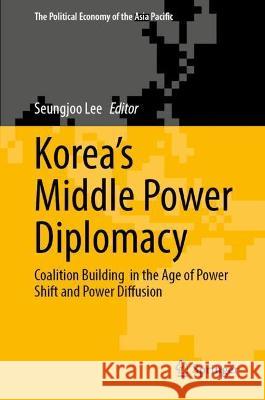Korea's Middle Power Diplomacy: Between Power and Network » książka
topmenu
Korea's Middle Power Diplomacy: Between Power and Network
ISBN-13: 9783030760113 / Angielski / Twarda / 2022 / 155 str.
Kategorie BISAC:
Wydawca:
Springer
Seria wydawnicza:
Język:
Angielski
ISBN-13:
9783030760113
Rok wydania:
2022
Wydanie:
2021
Numer serii:
000349724
Ilość stron:
155
Oprawa:
Twarda
Wolumenów:
01
Dodatkowe informacje:
Wydanie ilustrowane











